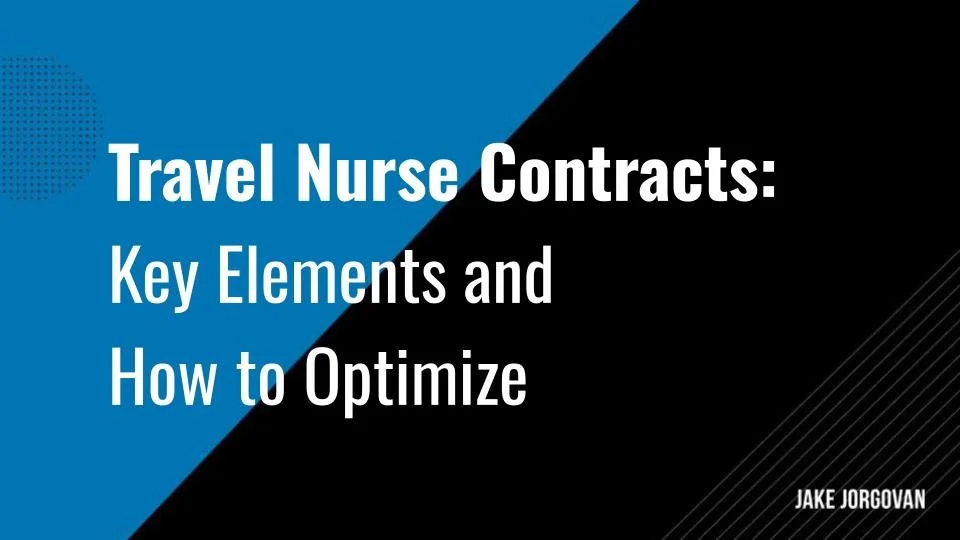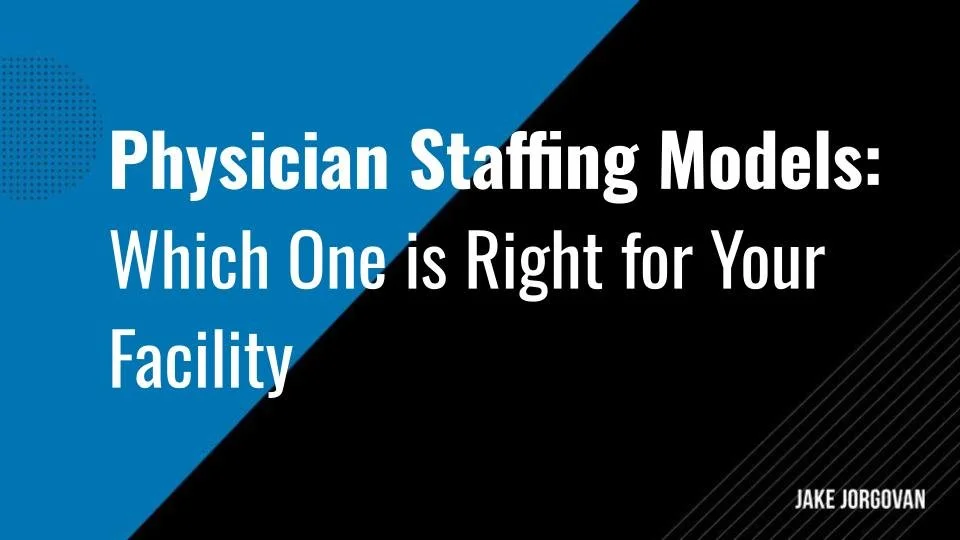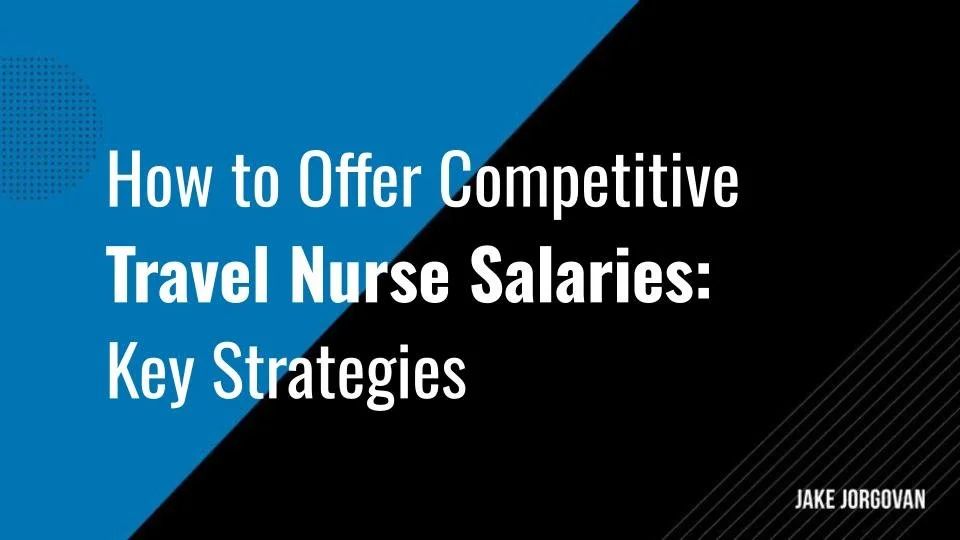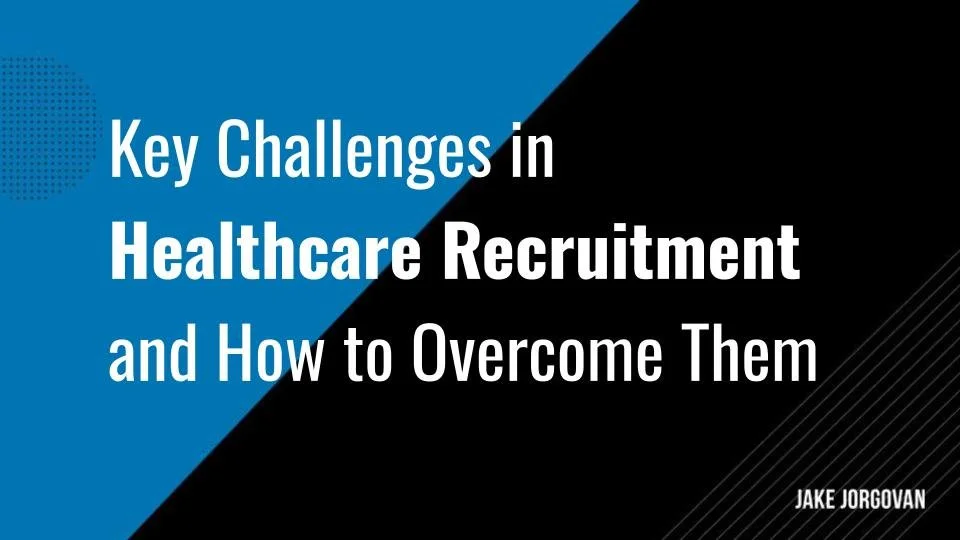How Healthcare RPO Can Address Talent Shortages in 2025
Healthcare systems worldwide face a pressing talent shortage.
Recruitment Process Outsourcing (RPO) has emerged as a strategic response, tailored for the complex demands of the healthcare sector.
This article will explore:
How RPO can mitigate talent shortages in healthcare.
Effective RPO strategies for recruitment.
Success stories and actionable tips for leveraging RPO.
Our focus is clear: to equip healthcare organizations like yours with the knowledge to thrive amid workforce challenges.
Let’s dive in!
Strategies for Overcoming Talent Shortages with RPO
Access to a Broader Talent Pool
RPO expands your reach beyond traditional sources because their networks tap into global talent markets and their advanced analytics pinpoint candidates who meet specific skill sets.
This strategy optimizes your recruitment process and ensures a diverse candidate pool. Accessing international expertise becomes streamlined and effective.
Plus, you’re directly addressing talent shortages in healthcare:
Global Networks and Databases: RPO providers maintain extensive connections across various regions and sectors. You benefit from their ability to reach potential candidates far beyond local or national boundaries. These networks are not just wide but deeply integrated with specialized fields, including those rare skills needed in healthcare that are often not available locally. For example, you may coordinate with doctor and physician RPO companies in identifying top medical professionals across diverse regions.
Advanced Technology and Analytics: You gain access to cutting-edge tools for candidate sourcing. RPOs utilize sophisticated algorithms and data analytics to parse through vast amounts of data and identify the best fits for specific roles. This includes predictive analytics to foresee candidate success in roles, ensuring you meet not only immediate but long-term staffing needs.
Insider Tip:
Consider embedding your team members within the RPO's analytics team. This collaboration fosters a deeper understanding of your specific needs, enabling the RPO to fine-tune their data models to better predict and locate candidates who not only fill current gaps but will also thrive long-term in your organization.
Expertise in Healthcare Recruitment
RPOs possess deep knowledge of healthcare recruitment nuances. They ensure candidates meet exacting standards and compliance needs. Their mastery facilitates quick, precise talent alignment with your strategic goals. You benefit from proven recruitment methodologies tailored to healthcare's unique demands.
Tackling healthcare talent shortages effectively requires a nuanced approach that Healthcare RPO providers deliver through:
Specialized Industry Knowledge: Your RPO partner brings an in-depth understanding of healthcare regulations and standards. This expertise ensures that every candidate meets stringent compliance and skill requirements, mitigating risks related to regulatory non-compliance.
Best Practices in Recruitment: You access established methodologies that streamline the sourcing, screening, and hiring processes. RPOs employ proven strategies such as competency-based interviews and evidence-based selection techniques. These methods enhance the precision in matching the right talent to the right roles.
Implementation of Advanced Screening Techniques: Healthcare RPOs use sophisticated tools to conduct thorough background checks and verifications. This step is critical in healthcare, where the qualifications and histories of candidates directly impact patient safety and care quality.
By leveraging such specialized expertise, you not only fill vacancies faster but also ensure that hires are a perfect fit for your long-term objectives.
Insider Tip:
To maximize your RPO's effectiveness, regularly update them on internal shifts in staffing priorities and emerging roles. This alignment helps your RPO fine-tune their recruitment strategies to anticipate and fulfill your evolving needs, ensuring the candidates they source are precisely matched to your future requirements.
Scalability and Flexibility
An RPO adapts quickly to your changing hiring needs. They scale operations up or down efficiently. And this flexibility ensures you meet demand without excess.
You can customize solutions to fit exact organizational requirements, so your staffing remains agile, responsive to shifts in healthcare demands.
Leveraging the scalability and flexibility of Healthcare RPO helps you adeptly manage talent shortages:
Responsive Scaling: Your RPO can swiftly increase recruitment efforts during peak times and scale back when demand wanes. This adaptability ensures you have adequate staffing without overcommitting resources during slower periods.
Customizable Recruitment Solutions: Tailor RPO services to fit your unique organizational challenges and goals. Whether you need a sudden influx of specialized nurses or a steady stream of support staff, the RPO adjusts its strategies to your specifications.
Dynamic Resource Allocation: Utilize RPO's flexibility to redirect resources efficiently across different departments or roles as needs evolve. This strategy ensures that high-priority areas receive immediate attention, optimizing your workforce in real time.
Insider Tip:
Initiate quarterly reviews with your RPO to assess and adjust recruitment thresholds based on upcoming healthcare trends and internal audit findings. This proactive measure keeps your staffing agile, aligning your human resources strategy tightly with both anticipated demands and unexpected shifts in the healthcare sector.
Cost Efficiency
RPO streamlines recruitment, significantly cutting hiring costs. And their bbulk hiring practices further reduce expenditure per hire.
These efficient processes decrease turnover, minimizing costly hiring cycles. And streamlined hiring lowers expenses, improving your budget efficiency.
You can also adopt RPO strategies to maintain fiscal health while meeting staffing demands.
Let’s see these benefits in more depth:
Streamlined Recruitment Processes: Your RPO leverages refined, systematic approaches to recruitment, reducing the time and resources spent on each hire. This efficiency cuts down on operational costs, allowing you to allocate funds to other areas.
Bulk Hiring: Engage in bulk hiring strategies during peak recruitment periods. This approach lowers the cost per hire by spreading fixed recruitment expenses across a larger number of hires, delivering better cost-effectiveness for your facility.
Quality Candidate Placement Reduces Turnover: By ensuring only qualified, well-matched candidates are hired, your RPO minimizes the turnover rate. Fewer mis-hires lead to reduced rehiring and retraining costs, stabilizing your workforce and decreasing long-term expenditures.
Insider Tip:
Align your RPO's payment structure with performance metrics such as hire quality and retention rates. This incentivizes the RPO to focus on long-term results rather than quick fills, ensuring you invest in hires who contribute effectively and endure within your organization, ultimately optimizing your recruitment spending.
Success Stories of Healthcare Organizations Filling Critical Roles
Here are two notable success stories that demonstrate how Healthcare RPO has helped organizations fill critical roles effectively:
Duke University Health System (DUHS): DUHS first engaged Hueman for a project to strengthen its internal talent acquisition by providing end-to-end recruiting for RNs and corporate positions. The initial success led to a long-term partnership, highlighting RPO's ability to adapt and deliver sustained recruitment solutions in healthcare settings.
Fresenius Medical Care: This global healthcare company faced challenges hiring specialized R&D talent across multiple locations. By partnering with Cielo, Fresenius enhanced its sourcing strategies and successfully filled over 120 specialized positions. This partnership not only reduced the time to hire by 21% but also achieved a direct hiring rate of 99%, excluding agency involvement. This example showcases the effectiveness of a tailored RPO approach in managing complex, high-volume recruitment needs in specialized areas.
These examples illustrate how RPOs provide scalable, flexible solutions that can significantly improve hiring outcomes for healthcare organizations.
Tips for Leveraging RPO to Attract Top Talent
Employer Branding
A strong employer brand makes you stand out to candidates. It signifies stability, growth, and commitment. Candidates seek these qualities in potential employers.
And there’s more.
A compelling brand attracts not just applicants but the right ones. It transforms recruitment into a strategic asset, enhancing your appeal to top talent.
RPOs can significantly enhance your organization's reputation in the job market through the following strategic actions:
Consider your RPO partner as an extension of your brand. Ensure they understand and convey your core values and mission effectively to potential candidates. This alignment helps portray a consistent and attractive image to job seekers.
Leverage the RPO's expertise to showcase innovative recruitment practices. Highlighting a streamlined, technology-driven hiring process can set your organization apart as a forward-thinking employer.
Encourage the RPO to implement feedback mechanisms with candidates. Transparent communication about the recruitment process can enhance your reputation for being responsive and candidate-focused.
Promote success stories and positive outcomes from your partnership with the RPO. Sharing specific examples of how the RPO has filled difficult roles efficiently can boost your market image as an employer of choice.
Insider Tip:
Initiate a joint marketing venture with your RPO to highlight your healthcare innovations and workplace culture. This collaboration broadens your appeal and solidifies your reputation as a top employer in healthcare circles. Make your organization the talk of industry events and online forums.
Strategic Workforce Planning
Deploy advanced analytics to decode complex staffing trends. This method pinpoints your future needs accurately so you can adapt swiftly by aligning your recruitment strategies ahead of demand. This precision supports your ability to manage staffing proactively.
For effective long-term workforce strategies through collaboration with RPOs:
Engage your RPO in strategic discussions early. This ensures they understand your long-term goals and can tailor their efforts accordingly.
Set clear objectives for workforce planning. Define what success looks like in terms of staffing levels, skills mix, and departmental needs.
Use data-driven insights provided by the RPO to anticipate industry shifts and technological advancements. This prepares you to adapt your workforce proactively.
Regularly review and adjust the strategies with your RPO. As your organization evolves, ensure that your staffing strategies are aligned and responsive to changes.
Foster a transparent relationship with your RPO. Clear communication about expectations and challenges helps in crafting more effective strategies.
Insider Tip:
Schedule quarterly strategy sessions with your RPO to refine workforce planning. Focus these meetings on evaluating past performance metrics and integrating industry trends. This regular, strategic alignment ensures your staffing efforts are proactive and responsive to the dynamic healthcare sector's needs.
Building Talent Pipelines
Building talent pipelines secures a steady candidate flow, which ensures you’re ready for sudden staffing needs. And you’ll be positioned advantageously in fast-moving healthcare markets.
A proactive pipeline strategy also minimizes recruitment delays, meaning you can maintain operational excellence with continuous talent influx. This strategic foresight helps you overcome your competition effectively.
To effectively build talent pipelines by engaging with educational institutions and maintaining ongoing recruitment efforts through RPO:
Initiate partnerships with key healthcare training programs. These relationships can provide early access to emerging talent ready to enter the workforce.
Coordinate with your RPO to host career fairs and workshops at these institutions. These events allow direct interaction with potential candidates, showcasing your organization as an attractive employer.
Implement internship and residency programs through the RPO. Such programs convert students to full-time roles, ensuring a consistent inflow of trained professionals.
Develop a co-branded scholarship program with the RPO. Offer these to students in critical healthcare disciplines to foster loyalty and a direct pipeline into your organization.
Ensure the RPO maintains a presence on campus. Regular engagement keeps your organization top of mind among soon-to-be graduates.
Insider Tip:
Capitalize on alumni networks through your RPO. Encourage them to tap into these networks for referrals and re-engagement of former students now seasoned professionals. This strategy not only enriches your talent pool but also leverages pre-existing loyalties to your advantage.
Enhancing Employee Retention
High retention rates signal stability and satisfaction, so they enhance your reputation as a desirable employer.
Even better, satisfied employees often become your best recruiters. They attract similar, high-quality talent to your ranks. This creates a positive cycle that strengthens your team's quality and cohesiveness.
To enhance employee retention in healthcare through RPO:
Work with your RPO to identify high-stress roles. Develop targeted support programs for these positions to reduce burnout and turnover.
Instruct your RPO to integrate well-being programs into recruitment packages. These should include mental health support, flexible scheduling options, and wellness benefits.
Demand regular engagement surveys from your RPO. Use these tools to gauge satisfaction and address areas of concern promptly.
Collaborate with the RPO on continuous professional development programs. These programs should cater to career advancement and skill enhancement, key drivers of job satisfaction.
Establish a feedback loop with your RPO. This ensures that employee grievances and suggestions contribute directly to retention strategies.
Insider Tip:
Leverage your RPO to conduct exit interviews. Use these insights to identify patterns and mitigate future turnover. Focus on enhancing aspects that matter most to departing staff. This proactive approach refines your retention strategy, ensuring your workplace continually adapts to employee needs and expectations.
Revolutionizing Healthcare Recruitment: The Strategic Role of RPOs in Addressing Talent Shortages
As you can see, Recruitment Process Outsourcing offers a strategic solution to the pervasive talent shortages in healthcare. This approach extends global reach, taps into specialized skills, and leverages advanced analytics for precise candidate matching. Healthcare RPOs utilize their deep industry knowledge to ensure compliance and fit, enhancing recruitment efficacy.
Looking forward, the role of RPOs in healthcare is poised to become more integral.
As healthcare demands evolve, RPOs will likely lead in innovation, maintaining agility in workforce management and pushing the boundaries of traditional recruitment to meet the future needs of the sector. Their continuous adaptation and integration of technology will set the stage for sustained success in attracting and retaining top talent in healthcare.
So, consider partnering with an RPO to drive your healthcare organization to success.

































